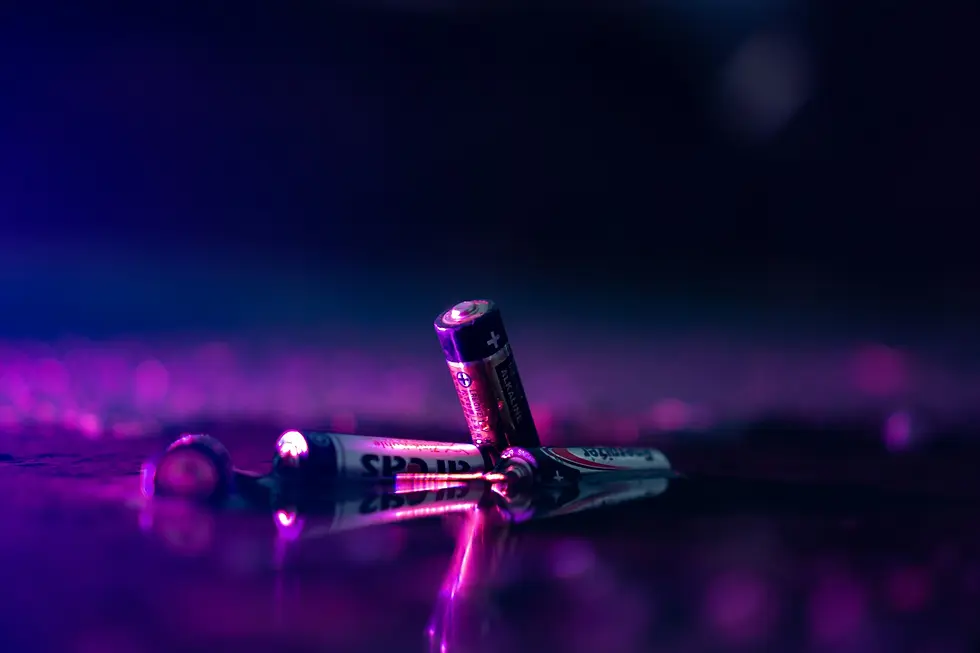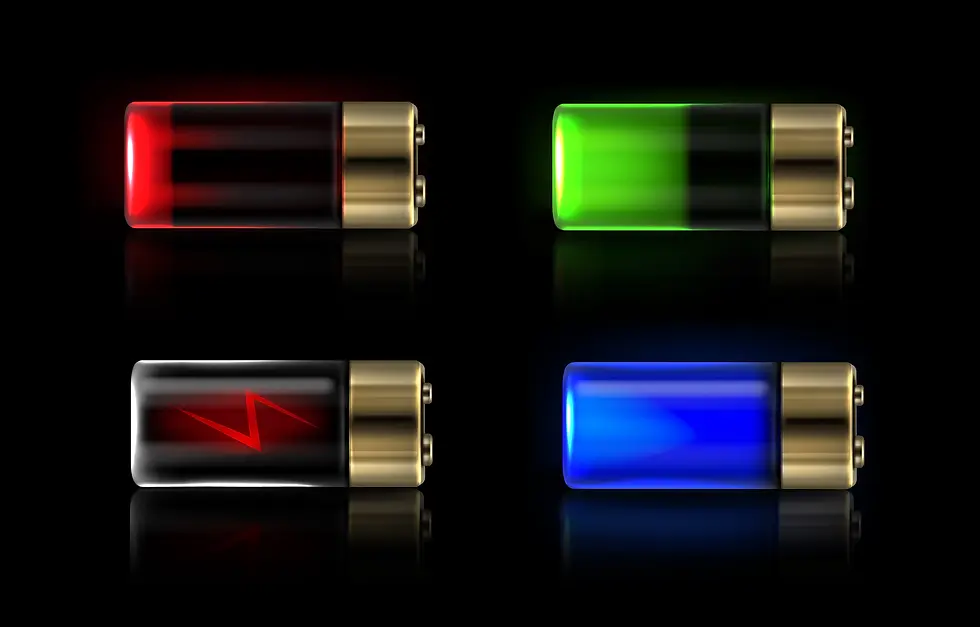The Future of Energy: Advanced Lithium Storage Solutions
- Lithi+
- Dec 27, 2024
- 3 min read

In an era driven by the urgency of transitioning to clean energy, lithium battery technologies stand at the forefront of innovation. As renewable energy sources like solar and wind expand globally, the demand for efficient and sustainable energy storage has surged. This has brought lithium storage solutions into the spotlight as a pivotal component in shaping a greener future. At LithiPlus, we are dedicated to advancing these technologies to meet modern energy needs while addressing sustainability concerns.
The Growing Importance of Lithium Storage Solutions
Meeting the Demands of a Clean Energy Future
As nations commit to reducing greenhouse gas emissions and scaling renewable energy, one challenge persists: reliable energy storage. Lithium batteries—already powering devices, electric vehicles (EVs), and energy grids—play a critical role in bridging the gap between intermittent renewable generation and consistent energy availability. However, the current technology’s capacity and environmental impact raise concerns about its scalability for a global clean energy transition.
Expanding Role in Electric Vehicles
With projections suggesting over 26 million battery-powered EVs on US roads by 2030, lithium storage solutions must evolve to support this growth. Current lithium-ion batteries face limitations in energy density, safety, and recyclability. For sustainable mobility, engineers and researchers are exploring alternative designs and materials to enhance performance while reducing ecological impact.
Innovations Redefining Lithium Storage Solutions
Lithium-Metal Batteries: Higher Energy Density
Advancements in battery chemistry are paving the way for lithium-metal batteries, a promising alternative to conventional lithium-ion technology. Unlike lithium-ion batteries that rely on graphite anodes, lithium-metal batteries use solid lithium, enabling substantially higher energy density.
Emily Ryan, a mechanical engineering expert, highlights the transformative potential of lithium-metal batteries. These could enable:
Smartphones requiring weekly charging instead of daily.
EVs offering up to 600 miles per charge with the same battery size.
Smaller, more efficient batteries, reducing raw material usage.
However, challenges remain. Lithium metal is reactive, leading to the formation of dendrites—tree-like structures that degrade battery performance and pose safety risks. Collaborative research efforts are addressing these issues, aiming to stabilize lithium-metal batteries for widespread adoption.
Advanced Battery Architectures
Battery architecture significantly influences performance, particularly charging speed and energy storage capacity. Engineers are innovating interdigitated designs, resembling interlacing fingers, to minimize ion travel distance. This allows faster charging without sacrificing energy capacity.
For instance, Jörg Werner’s research focuses on optimizing battery cell layers to maximize active material while ensuring safety. Such designs could revolutionize EV adoption by reducing charging times and improving reliability.
Heat as a Storage Medium
Beyond conventional batteries, alternative energy storage methods are gaining traction. Ceramic-based materials capable of storing heat energy offer a cost-effective and durable solution. Sean Lubner’s research demonstrates that these systems can withstand extreme temperatures and maintain performance over hundreds of cycles. By converting heat to electricity or industrial energy, thermal storage systems complement lithium storage solutions, particularly for large-scale applications.
Addressing Sustainability Challenges
Mitigating Environmental and Ethical Concerns
The sustainability of lithium storage solutions hinges on addressing the environmental and social costs of material sourcing. Mining lithium and cobalt often involves harmful practices, including unsafe working conditions and ecological damage. Experts advocate for sustainable mining practices and the development of alternative materials to reduce reliance on scarce resources.
Recycling and Reusing Batteries
Currently, less than 10% of battery waste is properly recycled. This creates significant environmental hazards, including pollution from leaching and landfill fires. Solutions like closed-loop supply chains, where manufacturers take responsibility for recycling spent batteries, can mitigate these issues.
Global initiatives, such as the Global Battery Alliance, aim to establish standards for sustainable battery production and recycling. By integrating these practices, companies like LithiPlus can contribute to a more circular economy while ensuring energy storage remains affordable and accessible.
Pioneering the Future with LithiPlus
At LithiPlus, our mission is to revolutionize lithium storage solutions through innovation, sustainability, and practical implementation. Our approach includes:
Investing in Advanced Materials: From lithium-metal to dendrite-resistant designs, we’re developing technologies that enhance performance and safety.
Promoting Recycling Initiatives: Partnering with global organizations to streamline battery recycling and reduce environmental impact.
Exploring Thermal Storage Options: Diversifying energy storage methods to complement lithium technologies and support large-scale renewable energy systems.
Why Lithium Storage Solutions Matter
The transition to a low-carbon future depends on reliable, efficient energy storage. Whether it’s powering an electric vehicle, stabilizing the grid, or enabling solar-powered homes, lithium storage solutions hold the key to unlocking a sustainable world. By prioritizing innovation and sustainability, LithiPlus is not just meeting today’s energy demands but also building a foundation for future generations.
Conclusion: Shaping Tomorrow’s Energy Landscape
The race to develop better lithium storage solutions is about more than just technology; it’s about creating a sustainable, equitable energy system for all. With ongoing innovations in battery chemistry, architecture, and recycling, the potential to reshape how we store and use energy is immense. At LithiPlus, we’re proud to be part of this transformative journey, contributing to a cleaner, greener future.
_edited.png)



Comments